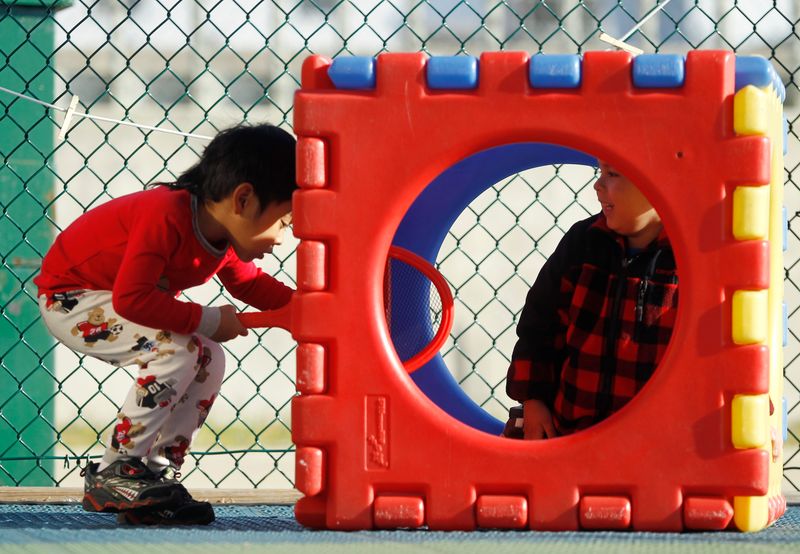15 Things Working-Class Moms and Dads Instantly Pick Up On When Talking to Wealthy Parents
Working-class parents often find themselves navigating a maze of unspoken norms and cultural cues when interacting with their wealthier counterparts. Conversations with affluent parents can reveal stark contrasts in values, lifestyles, and assumptions that may not be immediately apparent.
This blog post explores 15 things that working-class moms and dads instantly recognize when talking to wealthy parents, shedding light on the subtle yet profound differences that shape these interactions.
1. The casual way they talk about expensive ‘essentials’

When wealthy parents chat about ‘essentials’ like high-end strollers or organic-only baby food, it can feel like entering a parallel universe where cost is no object. Working-class parents might internally raise an eyebrow at the nonchalant mention of items that could easily break the family budget.
To affluent parents, these products are seen as necessities, not luxuries. This casual approach to spending highlights a gap in financial perspectives.
For many, it’s not just about the money; it’s about a different understanding of what constitutes a need versus a want. This divergence becomes clear in conversations, where the term ‘essential’ means vastly different things depending on one’s financial background.
2. Their shock over public school experiences

Wealthy parents often react with surprise or concern when hearing about public school experiences. For working-class families, public schools are a standard part of life, filled with both challenges and opportunities.
The disbelief from affluent parents may stem from unfamiliarity with an institution they believe lacks the resources of private schools.
This reaction can create a disconnect, as public school realities are seen through a distorted lens. For working-class parents, the emphasis is on resilience and community, rather than perceived shortcomings. The contrast is palpable when education surfaces in conversation, revealing deep-seated differences in educational expectations and experiences.
3. The assumption that everyone has backup childcare

In many wealthy circles, having backup childcare is taken for granted. Nannies, au pairs, or even flexible family members stand ready to step in at a moment’s notice.
For working-class parents, this assumption can be jarring, as reliable childcare might involve juggling jobs or relying on a patchwork of solutions. The idea of easily accessible help underscores a privilege not universally shared.
Conversations around childcare reveal stark contrasts in support systems. While affluent parents may discuss their arrangements with ease, working-class families often navigate a more complex landscape of time and resource management.
4. Vacation talk that sounds like science fiction

When wealthy parents talk about vacations, the destinations and experiences often seem otherworldly to the working class. Exotic locales, private villas, and first-class flights are common topics, painting a picture that feels like a distant dream.
For working-class parents, vacations might involve road trips or local getaways. The disparity in travel experiences highlights economic divides, turning a simple conversation about holidays into a stark reminder of financial realities.
While affluent families share tales of far-off adventures, others might wonder about the feasibility of such trips, quietly reflecting on their own travel possibilities.
5. How they treat working parents like a lifestyle choice

Affluent parents sometimes speak about work as a personal choice, not recognizing the necessity it represents for many. Working-class parents often work out of need, not preference, balancing multiple jobs to make ends meet.
This disconnect can lead to awkward moments, as affluent parents may casually inquire about career changes or work-life balance tips, assuming flexibility that isn’t there.
To affluent families, work is frequently about fulfillment or passion. For others, it’s survival. The conversations around employment reveal profound differences in how work is perceived and prioritized.
6. Their comfort discussing therapy and tutors like basics

For wealthy parents, therapy and tutoring are often seen as standard support systems for children. Conversations about these resources flow naturally, highlighting an expectation of access.
Working-class parents may view these services as luxuries due to cost or availability. The ease with which affluent families discuss them underscores differences in what is considered accessible or necessary.
This divide can lead to misunderstandings, as the assumption of universal access clashes with reality. The comfort with these topics reflects broader disparities in expectations around child-rearing support and educational opportunities.
7. Their complete confidence in life going ‘according to plan’

Confidence permeates conversations with wealthy parents, who often assume life will unfold as planned. This assurance can puzzle working-class parents, accustomed to navigating unpredictability.
For affluent families, resources buffer against life’s uncertainties, fostering a sense of control. In contrast, others may feel that life is shaped by external forces beyond their influence.
The divergence in outlook becomes evident in discussions about the future, where plans are made with differing degrees of certainty. This assuredness can create a gap in understanding, as financial stability often dictates one’s confidence in planning.
8. The name-dropping that doesn’t even register to them

Celebrity encounters or connections can feature prominently in the dialogues of wealthy parents. Name-dropping is common, yet often done unintentionally, as these interactions are part of their social fabric.
Working-class parents might find this surprising, as such experiences are not part of their everyday lives. The casual nature of these mentions highlights a social divide, where fame and influence carry different weights.
For affluent families, these references are ordinary, reflecting a lifestyle where access to the famous is normal. This unassuming approach can create a cultural gap, as names that impress some are routine for others.
9. Their surprise at how much others rely on extended family

Wealthy families might be taken aback to learn how much working-class parents depend on extended family. Grandparents or siblings often play crucial roles in childcare and support.
For affluent parents, paid help usually replaces familial assistance, making extended family involvement seem quaint or surprising. This reliance underscores community and familial bonds among working-class families.
Conversations about family roles can reveal differing expectations and resources. While some view family as an essential support network, others see it as supplementary to professional help. These dynamics reflect broader cultural variations in family reliance.
10. Their comfort with confrontation—because it’s not survival-based

Affluent parents often approach confrontation with ease, viewing it as part of problem-solving. This confidence can starkly contrast with working-class parents, for whom confrontation might be more anxiety-inducing due to higher stakes.
For many, avoiding conflict is a survival strategy, as the repercussions can be more severe. The affluent, buffered by resources, may not feel the same pressure.
This difference in approach becomes evident in discussions about issues like school policies or services, where confidence levels in addressing problems vary significantly. The contrast in handling confrontation reflects broader disparities in perceived risk and security.
11. The guilt they carry about privilege (but not the solutions)

There’s often an awareness of privilege among wealthy parents, accompanied by an undercurrent of guilt. They may acknowledge advantages yet struggle with actionable solutions.
This acknowledgment can be perplexing to working-class parents, who might prioritize pragmatic approaches over introspection. The affluent’s discussion of privilege can seem detached, lacking tangible commitments.
The conversation about privilege often centers on awareness rather than change, highlighting a gap in approach. For some, privilege is a lens of introspection; for others, it’s a call for action. These dialogues reveal fundamental differences in perspectives on equity and responsibility.
12. Their praise of ‘grit’ without really understanding it

Wealthy parents often admire ‘grit’ in theory, applauding perseverance and hard work. Yet, they might lack firsthand understanding of the trials that cultivate such resilience.
For working-class families, grit is lived daily, formed by navigating challenges and limited resources. The disconnect arises when affluent praise feels theoretical rather than experiential.
This admiration can seem superficial to those who associate grit with survival, not choice. Discussions around perseverance reveal divergences in understanding, as the concept carries different connotations depending on life experiences.
13. Their confusion over why others don’t ‘just ask for help’

The suggestion to ‘just ask for help’ can be bewildering to working-class parents, who might not have access to support systems or fear repercussions.
For affluent families, help is readily available, making the advice seem practical. However, it overlooks barriers others face, such as pride, stigma, or lack of resources.
This well-intentioned advice underscores a divide in understanding. While affluent parents see help as an obvious solution, others view it through a complex lens of accessibility and vulnerability. Conversations about support often reveal these nuanced perspectives.
14. Their calmness when discussing failure (it’s not a risk)

Failure discussions among wealthy parents often lack urgency, seen as learning opportunities rather than risks. This calm can contrast sharply with working-class parents, for whom failure might have immediate consequences.
Affluent families, insulated by resources, can afford to view setbacks with detachment. The stakes are lower, allowing for a broader perspective.
This difference in attitude becomes apparent in discussions about careers, education, or investments. For some, failure is a stepping stone; for others, it’s a pitfall. These conversations highlight the varying degrees of risk associated with failure based on financial security.
15. The way they trust systems that working-class parents have learned to navigate or avoid

Systems like education or healthcare are often trusted by wealthy parents, who assume they’ll function as intended. This trust can seem naive to working-class parents, who have learned to navigate or avoid bureaucratic hurdles.
For many, systems are fraught with barriers, requiring strategic navigation to access benefits. Affluent families, however, may experience streamlined processes due to influence or resources.
Conversations about navigating systems reveal these differences. Trust contrasts with skepticism, highlighting the lived experiences of those who face systemic challenges. The gap in perception underscores disparities in access and efficacy.







